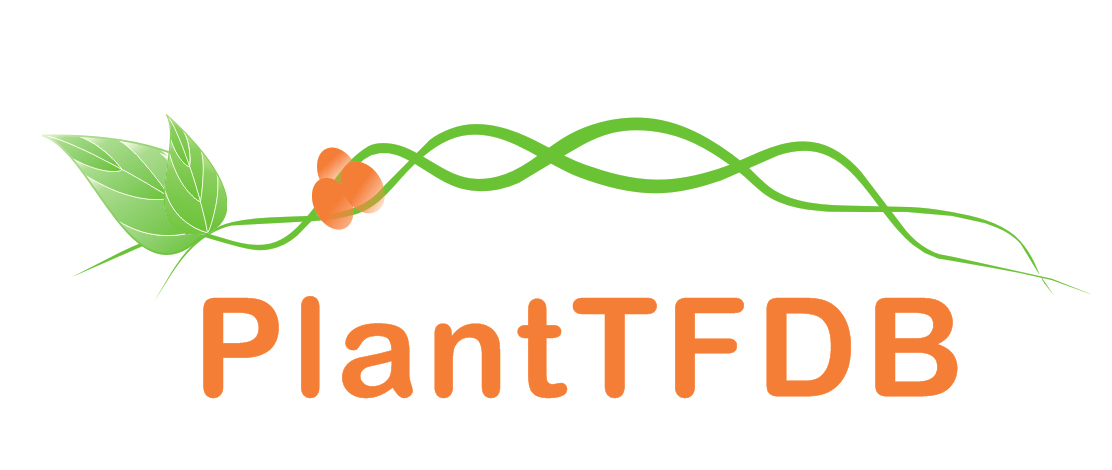 |
PlantRegMap/PlantTFDB v5.0
Plant Transcription
Factor Database
|
| Home TFext BLAST Prediction Download Help About Links PlantRegMap |
Transcription Factor Information
| Basic Information? help Back to Top | |||||||||
|---|---|---|---|---|---|---|---|---|---|
| TF ID | GSBRNA2T00077733001 | ||||||||
| Common Name | GSBRNA2T00077733001 | ||||||||
| Organism | |||||||||
| Taxonomic ID | |||||||||
| Taxonomic Lineage |
cellular organisms; Eukaryota; Viridiplantae; Streptophyta; Streptophytina; Embryophyta; Tracheophyta; Euphyllophyta; Spermatophyta; Magnoliophyta; Mesangiospermae; eudicotyledons; Gunneridae; Pentapetalae; rosids; malvids; Brassicales; Brassicaceae; Brassiceae; Brassica
|
||||||||
| Family | WRKY | ||||||||
| Protein Properties | Length: 294aa MW: 32381.6 Da PI: 9.5525 | ||||||||
| Description | WRKY family protein | ||||||||
| Gene Model |
|
||||||||
| Signature Domain? help Back to Top | |||||||
|---|---|---|---|---|---|---|---|
| No. | Domain | Score | E-value | Start | End | HMM Start | HMM End |
| 1 | WRKY | 94.6 | 6.9e-30 | 215 | 272 | 3 | 59 |
-SS-EEEEEEE--TT-SS-EEEEEE-ST.T---EEEEEE-SSSTTEEEEEEES--SS- CS
WRKY 3 DgynWrKYGqKevkgsefprsYYrCtsa.gCpvkkkversaedpkvveitYegeHnhe 59
D+y+WrKYGqK++kgs++pr+YY+C++ +Cp++k+ver+ +dp+++++tYe eH+h+
GSBRNA2T00077733001 215 DEYSWRKYGQKPIKGSPHPRGYYKCSTFkECPARKHVERALDDPSMLIVTYEWEHDHN 272
9************************8766****************************7 PP
| |||||||
| Protein Features ? help Back to Top | ||||||
|---|---|---|---|---|---|---|
| Database | Entry ID | E-value | Start | End | InterPro ID | Description |
| Pfam | PF10533 | 4.2E-17 | 167 | 211 | IPR018872 | Zn-cluster domain |
| Gene3D | G3DSA:2.20.25.80 | 1.0E-31 | 201 | 272 | IPR003657 | WRKY domain |
| PROSITE profile | PS50811 | 28.885 | 208 | 274 | IPR003657 | WRKY domain |
| SuperFamily | SSF118290 | 8.63E-26 | 211 | 273 | IPR003657 | WRKY domain |
| SMART | SM00774 | 1.4E-34 | 213 | 273 | IPR003657 | WRKY domain |
| Pfam | PF03106 | 6.7E-26 | 215 | 271 | IPR003657 | WRKY domain |
| Gene Ontology ? help Back to Top | ||||||
|---|---|---|---|---|---|---|
| GO Term | GO Category | GO Description | ||||
| GO:0006355 | Biological Process | regulation of transcription, DNA-templated | ||||
| GO:0003700 | Molecular Function | transcription factor activity, sequence-specific DNA binding | ||||
| GO:0043565 | Molecular Function | sequence-specific DNA binding | ||||
| Sequence ? help Back to Top |
|---|
| Protein Sequence Length: 294 aa Download sequence Send to blast |
MAVDLMRFPQ MDDQKAIQEA ASQGLQSMEH LIRVLSTNRP EHNNNVDCSE ITDFTVSKFK 60 TVISLLNRTG HARFRRGPVP PAASPHKHQS QIAKPESAPI VLLPAVVAPS SQPSITLDFT 120 KPTMDFAKEN FSVSLNSSYM SSAITGDGSV SKGSSIFLAS QPVNSSEHEH SENFSGKISG 180 SGHGKCHCKK SRKNKMKRTI RVPAISSKIA DIPPDEYSWR KYGQKPIKGS PHPRGYYKCS 240 TFKECPARKH VERALDDPSM LIVTYEWEHD HNPSAMQQNV SSSGVNDFVF NSA* |
| 3D Structure ? help Back to Top | ||||||
|---|---|---|---|---|---|---|
| PDB ID | Evalue | Query Start | Query End | Hit Start | Hit End | Description |
| 2ayd_A | 2e-19 | 201 | 272 | 2 | 72 | WRKY transcription factor 1 |
| Search in ModeBase | ||||||
| Expression -- UniGene ? help Back to Top | ||||||
|---|---|---|---|---|---|---|
| UniGene ID | E-value | Expressed in | ||||
| Bna.9106 | 1e-124 | leaf| microspore-derived embryo| root| seed | ||||
| Expression -- Description ? help Back to Top | ||||||
|---|---|---|---|---|---|---|
| Source | Description | |||||
| Uniprot | TISSUE SPECIFICITY: In young, mature and senescent leaves. {ECO:0000269|PubMed:11722756}. | |||||
| Functional Description ? help Back to Top | ||||||
|---|---|---|---|---|---|---|
| Source | Description | |||||
| UniProt | Transcription factor. Interacts specifically with the W box (5'-(T)TGAC[CT]-3'), a frequently occurring elicitor-responsive cis-acting element (By similarity). Regulates rhizobacterium B.cereus AR156-induced systemic resistance (ISR) to P.syringae pv. tomato DC3000, probably by activating the jasmonic acid (JA)- signaling pathway (PubMed:26433201). {ECO:0000250, ECO:0000269|PubMed:26433201}. | |||||
| Cis-element ? help Back to Top | |
|---|---|
| Source | Link |
| PlantRegMap | GSBRNA2T00077733001 |
| Regulation -- Description ? help Back to Top | ||||||
|---|---|---|---|---|---|---|
| Source | Description | |||||
| UniProt | INDUCTION: Strongly during leaf senescence (PubMed:11722756). Repressed by rhizobacterium B.cereus AR156 in leaves, and to a lower extent, by P.fluorescens WCS417r (PubMed:26433201). {ECO:0000269|PubMed:11722756, ECO:0000269|PubMed:26433201}. | |||||
| Regulation -- PlantRegMap ? help Back to Top | ||||||
|---|---|---|---|---|---|---|
| Source | Upstream Regulator | Target Gene | ||||
| PlantRegMap | Retrieve | - | ||||
| Annotation -- Nucleotide ? help Back to Top | ||||||
|---|---|---|---|---|---|---|
| Source | Hit ID | E-value | Description | |||
| GenBank | AK352796 | 1e-110 | AK352796.1 Thellungiella halophila mRNA, complete cds, clone: RTFL01-05-N09. | |||
| Annotation -- Protein ? help Back to Top | |||||||
|---|---|---|---|---|---|---|---|
| Source | Hit ID | E-value | Description | ||||
| Refseq | XP_013716820.1 | 0.0 | probable WRKY transcription factor 11 isoform X1 | ||||
| Swissprot | Q9SV15 | 1e-161 | WRK11_ARATH; Probable WRKY transcription factor 11 | ||||
| TrEMBL | A0A078FJV0 | 0.0 | A0A078FJV0_BRANA; BnaA03g51590D protein | ||||
| STRING | Bra023998.1-P | 0.0 | (Brassica rapa) | ||||
| Orthologous Group ? help Back to Top | |||
|---|---|---|---|
| Lineage | Orthologous Group ID | Taxa Number | Gene Number |
| Malvids | OGEM2508 | 27 | 72 |
| Best hit in Arabidopsis thaliana ? help Back to Top | ||||||
|---|---|---|---|---|---|---|
| Hit ID | E-value | Description | ||||
| AT4G31550.1 | 1e-155 | WRKY DNA-binding protein 11 | ||||



